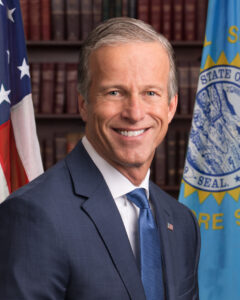
Time is closing in on the proposed passage of what is officially known as the One Big Beautiful Bill Act.
That legislation, which would extend most of the provisions of the 2017 Tax and Jobs Act, among other things, was approved in the House of Representatives on May 22 in a tight 215 to 214 vote.
President Trump and some Republican leaders have stated that they want the legislation to clear the Senate by no later than July 4. While that might appear easy, given that the Republicans enjoy a 53 to 47 majority in the chamber, Congressional analysts say the complexity of the bill mitigates against an easy passage.
Sticking points in the legislation include matters of a cap on state and local tax deductions, the size of business tax cuts, and the level of federal budget spending cuts.
An additional challenge is seen in the possibility that the House may make changes to the One Big Beautiful Bill Act even if it passes the Senate. “There’s just a lot of coordination to hopefully avoid some of the potential snafus that could happen with something that’s this complicated,” Senate Majority Leader and South Dakota Republican John Thune remarked to the publication Politico.
Thune has additionally noted that the bill, which he said will comprise the largest spending reduction legislation in history, will include initiatives to eliminate fraud and abuse in government programs.
The bill marks the first significant challenge for Thune who became the Senate Majority Leader just five months ago.
Notes reporter Mary Clare Jalonick for the Associated Press: “Thune can stand to lose only four votes in the face of united Democratic opposition—and many more Republicans than that are critical of the version sent over by the House.”
June 16, 2025
By Garry Boulard
Photo courtesy of the office of John Thune

